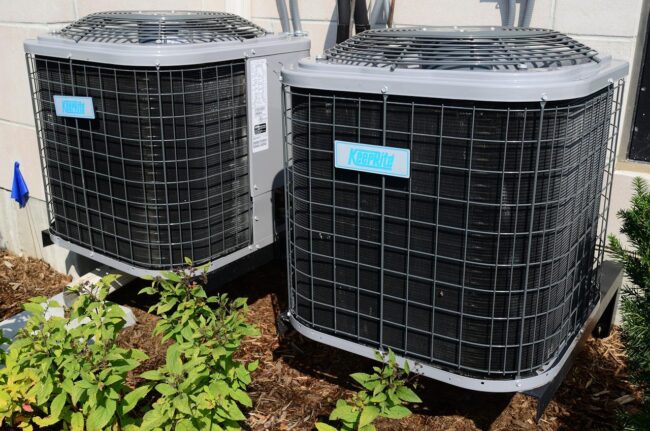
Living in Phoenix means relying on your heating system less than in colder parts of the country, but that doesn’t mean it’s any less important when winter arrives. Even with mild winters, a functioning heater is essential for comfort. But when your system starts acting up, you’re faced with a big decision: should you repair it or invest in a new one? Understanding the factors in this choice can help you make the best decision for your home and budget.
Signs Your Heating System Needs Repair
Not every issue requires replacing your heater. A repair can often get your system back to working efficiently. Here are some signs that indicate repairs might be the right solution:
- Uneven Heating – If certain rooms are colder than others, your system might need a minor repair, such as fixing a ductwork issue or cleaning a clogged filter.
- Strange Noises – Banging, rattling, or squealing sounds can point to loose components, a worn-out blower motor, or other minor issues that can often be fixed.
- Short Cycling – If your heater turns on and off frequently, it may be due to a faulty thermostat or a dirty filter, which can be repaired without replacing the unit.
- Increase in Energy Bills – A sudden spike in heating costs could mean your system is working harder than it should. If it’s relatively new, repairs may solve the issue.
- Frequent Repairs – If this is your first or second repair in several years, fixing the problem is likely a better option than replacing the entire system.
When It’s Time to Replace Your Heating System
Repairs can extend the life of a heating system, but at some point, a replacement becomes the smarter choice. Here are key indicators that it might be time for a new heater:
- Age of the System – Most heating systems last 15-20 years. If yours is approaching that range and experiencing frequent issues, replacing it might be the better investment.
- Major Component Failure – If the heat exchanger or blower motor fails, repairs can be expensive. In some cases, replacing the entire unit makes more financial sense.
- Rising Energy Bills – Older systems are less efficient than modern units. Even with regular maintenance, an aging heater will use more energy, costing you more in the long run.
- Frequent Repairs – If you find yourself calling for service multiple times a season, those repair costs add up quickly. Replacing the system can save you money over time.
- Your Home’s Heating Needs Have Changed – If you’ve remodeled your home or added new rooms, your current heater may no longer be the right size. An undersized system will struggle to keep up, while an oversized one will cycle too frequently, leading to inefficiency.
Cost Considerations: Repair vs. Replace
A good rule of thumb is the 50% Rule—if a repair costs more than half the price of a new system, replacement is usually the better choice. Here’s how to weigh the costs:
- Minor Repairs (Under $500): Things like replacing a thermostat, cleaning ducts, or fixing minor electrical issues are worth repairing.
- Moderate Repairs ($500-$1,500): If your system is still relatively young (under 10 years), investing in repairs can be a good decision.
- Major Repairs ($1,500+): When repair costs are high and your system is older, replacement is often the better long-term investment.
Energy Efficiency and Savings
Older systems are significantly less efficient than modern ones. According to the U.S. Department of Energy, newer high-efficiency furnaces operate at 90-98% efficiency, compared to older units that may only be 60-70% efficient. That difference translates to hundreds of dollars in energy savings per year.
If your heating system is over 15 years old, upgrading to an energy-efficient model can cut heating costs by 20-30%, depending on your current system’s efficiency.
Environmental Considerations
Beyond cost savings, upgrading to a newer system is better for the environment. Modern systems produce fewer carbon emissions and use eco-friendly refrigerants. If sustainability is a priority, replacing an outdated system with a high-efficiency model can reduce your household’s carbon footprint.
Choosing the Right System for Replacement
If you decide it’s time to replace your heating system, here are some factors to consider:
- Size Matters – A system that’s too large will cycle on and off too frequently, reducing efficiency. One that’s too small won’t keep your home comfortable. A professional can perform a load calculation to determine the right size for your home.
- Type of Heating System – Whether you have a furnace, heat pump, or another system, choosing the right type for your climate and home layout is important.
- Energy Efficiency Ratings – Look for a unit with a high AFUE (Annual Fuel Utilization Efficiency) rating. The higher the AFUE, the more efficient the system.
- Smart Thermostat Compatibility – Newer systems often integrate with smart thermostats, allowing you to optimize energy usage.
Deciding whether to repair or replace your heating system depends on several factors, including the age of your unit, repair costs, energy efficiency, and your home’s heating needs. If your system is relatively new and experiencing minor issues, repairs are usually the best option. However, if you’re dealing with frequent breakdowns, rising energy bills, or an aging unit, replacement might be the smarter long-term investment.
Taking the time to assess your options and consulting with a trusted HVAC professional can help ensure you make the right decision for your home, comfort, and budget.
